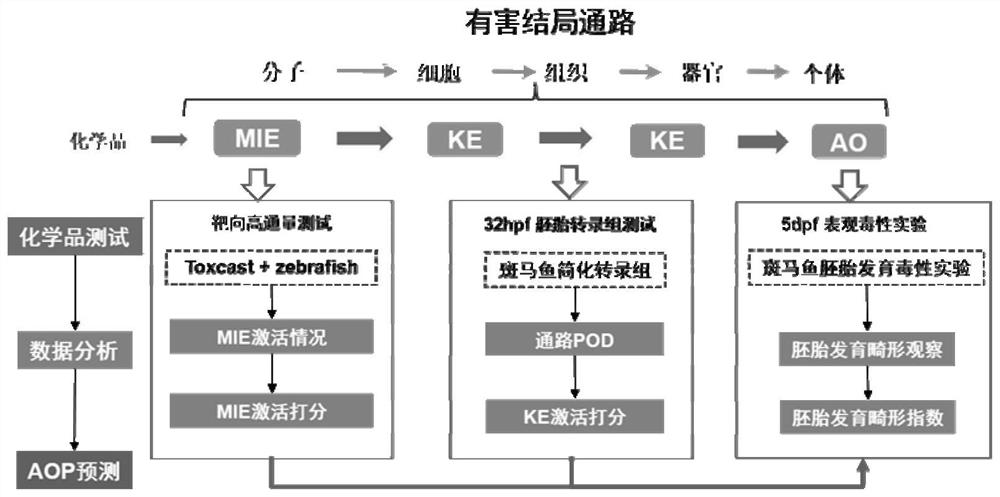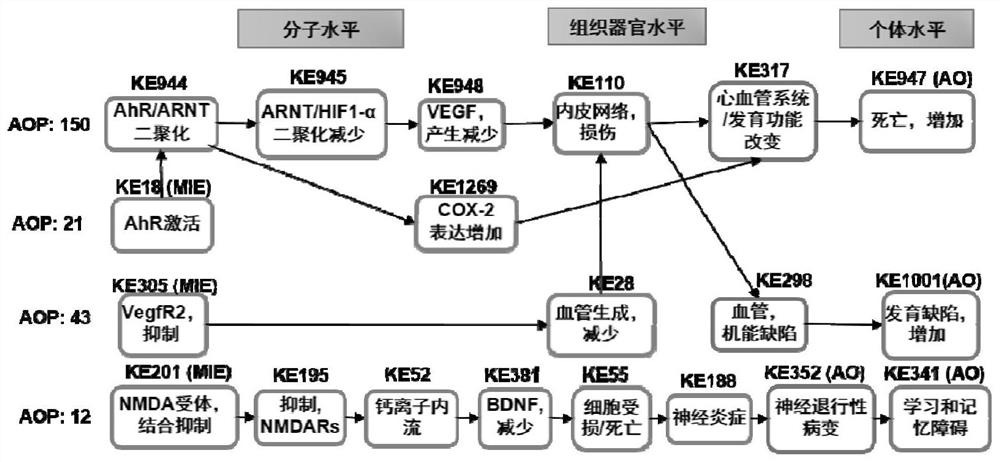A method for predicting embryonic developmental toxicity of chemicals based on dose-response simplified transcriptome
A technology of embryonic development and chemicals, applied in the field of predictive toxicology, can solve the problems of low prediction accuracy and inability to distinguish different toxic mode chemicals, etc., achieve good prediction effect, high accuracy, and improve the effect of discrimination
- Summary
- Abstract
- Description
- Claims
- Application Information
AI Technical Summary
Problems solved by technology
Method used
Image
Examples
Embodiment Construction
[0048] The present invention will be further described below in conjunction with specific embodiments.
[0049] This example provides a method for predicting embryonic developmental toxicity of chemicals based on dose-effect simplified transcriptome, figure 2 The technical roadmap of the method for integrating high-throughput test data to score zebrafish development-related AOPs is shown. The specific method steps are as follows:
[0050] 1) Select 11 typical environmental pollution chemicals that are widely used and have different poisoning mechanisms, and prepare chemical exposure solutions for them, and perform 10-fold serial dilutions from the highest concentration of chemicals that do not cause apparent deformity and death, 6-7 concentration groups were obtained, and a blank solvent control was set, and 20 zebrafish embryos at 6hpf (hours after fertilization) were exposed to each concentration group, and their RNA was extracted at 32hpf, and the dose-effect RZT test was ...
PUM
 Login to View More
Login to View More Abstract
Description
Claims
Application Information
 Login to View More
Login to View More - R&D
- Intellectual Property
- Life Sciences
- Materials
- Tech Scout
- Unparalleled Data Quality
- Higher Quality Content
- 60% Fewer Hallucinations
Browse by: Latest US Patents, China's latest patents, Technical Efficacy Thesaurus, Application Domain, Technology Topic, Popular Technical Reports.
© 2025 PatSnap. All rights reserved.Legal|Privacy policy|Modern Slavery Act Transparency Statement|Sitemap|About US| Contact US: help@patsnap.com



